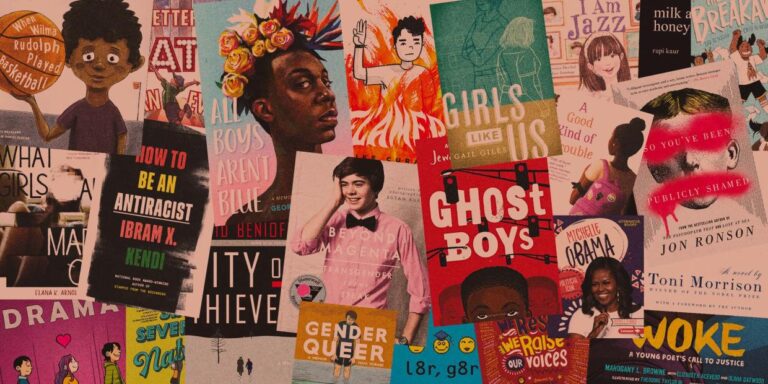Examining the Surge of Book Bans in Texas Public Schools: Implications and Responses
Emerging Patterns in Texas School Book Restrictions
Recently, Texas has experienced a notable increase in the removal of books from public school libraries, sparking widespread discussion and controversy. This movement, fueled by concerns over content considered inappropriate or politically charged, has led numerous school districts to reevaluate their library collections. From Houston to El Paso, districts have adopted varying approaches to address these concerns, often reflecting local political climates and parental pressures. The books targeted frequently explore themes related to race, gender identity, and sexuality, igniting debates about censorship, academic freedom, and the role of education in presenting diverse viewpoints.
The responses to these bans are far from uniform. Some districts have established transparent review panels that publicly disclose the titles removed and the reasons behind these decisions. Others have opted for swift book removals following minimal complaints, sometimes bypassing community input altogether. Additionally, several districts have organized public forums to engage stakeholders in dialogue, while others face ongoing legal challenges questioning the constitutionality of these bans.
| School District | Number of Books Removed | Main Reason Cited | Review Method |
|---|---|---|---|
| Dallas ISD | 48 | Explicit Sexual Content | Committee Evaluation |
| Austin ISD | 25 | Concerns Over Racial Themes | Community Discussions |
| Houston ISD | 33 | Gender Identity Topics | Immediate Removal |
| El Paso ISD | 20 | Political Content | Judicial Review |
Consequences of Censorship on Student Exposure to Varied Literature
The enforcement of book bans in Texas schools has significantly narrowed students’ access to a wide array of cultural and social narratives. This trend disproportionately affects literature authored by individuals from diverse racial, ethnic, and gender backgrounds, effectively silencing marginalized voices within educational settings. The removal of these works limits students’ opportunities to engage critically with complex societal issues, thereby hindering the development of empathy and cultural literacy. Educators have expressed concern that such restrictions undermine efforts to provide a comprehensive and inclusive curriculum.
Recent data indicates the categories most impacted by these bans include:
| Literary Category | Proportion of Banned Titles | Primary Issues Cited |
|---|---|---|
| Ethnic and Multicultural Studies | 47% | Depictions of racial inequality |
| LGBTQ+ Literature | 38% | Representation of identity and sexuality |
| Modern Social Topics | 28% | Political and gender-related discussions |
- Limited viewpoints: Restricts students’ ability to develop critical analysis and broaden their worldviews.
- Educational disparities: Creates gaps in understanding American history and contemporary social dynamics.
- Psychological effects: Marginalized students may experience feelings of exclusion and invisibility.
Community Reactions and Legal Battles Over Book Bans
The imposition of book bans has provoked a spectrum of responses from Texas communities, highlighting deep divisions over educational content and cultural representation. Parents, teachers, and activists have actively participated in school board meetings, public forums, and online campaigns to oppose these restrictions, emphasizing the importance of intellectual freedom and the inclusion of diverse voices. Critics argue that such bans stifle critical thinking and limit students’ exposure to essential perspectives needed for a well-rounded education. On the other hand, supporters defend the bans as necessary to maintain educational materials aligned with their moral and religious beliefs.
Legal challenges have emerged as a significant front in this debate. Civil rights organizations have initiated lawsuits against several districts, contesting the bans on constitutional grounds, particularly citing violations of First Amendment rights and equal protection clauses. The following table summarizes key legal proceedings underway:
| District | Legal Issue | Current Status |
|---|---|---|
| Houston ISD | First Amendment infringement | Active litigation |
| Austin ISD | Claims of discrimination | Case filed |
| Dallas ISD | Concerns over due process | Under judicial review |
- Grassroots Movements: Organizations like “Texans for Educational Equity” and “Voices for Readers” are mobilizing community support through petitions and awareness drives.
- Legal Support: The Texas Civil Liberties Union is providing legal representation and advocacy for affected students and educators.
- Policy Implications: These legal efforts could influence future statewide guidelines on educational content governance.
Strategies to Safeguard Intellectual Freedom in Educational Settings
To preserve a rich and inclusive curriculum, empowering educators and school leaders is crucial. Professional development programs that emphasize the importance of intellectual freedom and equip staff to navigate sensitive topics can foster a more confident and informed approach to controversial materials. Establishing clear, transparent policies that protect students’ rights to access diverse ideas encourages an educational atmosphere where critical thinking and open dialogue flourish. Maintaining open lines of communication among educators, parents, and students helps build trust and reduces tendencies toward censorship.
Active community involvement is equally vital. Schools can facilitate panels and discussions that highlight the value of diverse literary perspectives. Forming advisory committees inclusive of students, teachers, librarians, and parents ensures that book selection processes are balanced and representative. The table below outlines actionable steps districts can adopt immediately to promote intellectual freedom:
| Initiative | Objective | Anticipated Benefit |
|---|---|---|
| Open Review Procedures | Increase transparency in book evaluations | Minimize arbitrary censorship |
| Diverse Selection Committees | Engage a broad range of stakeholders | Ensure equitable representation in decisions |
| Student-Led Reading Programs | Amplify student voices in book choices | Boost student engagement and ownership |
Conclusion: Navigating the Complexities of Book Bans in Texas Schools
As Texas school districts continue to confront evolving challenges surrounding educational content, the documented rise in book bans highlights broader tensions involving curriculum control, cultural values, and free expression. These restrictions not only mirror local community standards but also underscore the intricate balance educators, parents, and policymakers must strike between safeguarding students and promoting intellectual diversity. The ongoing discourse serves as a powerful reminder of literature’s role in shaping young minds and the persistent challenge of protecting academic freedom within public education.







